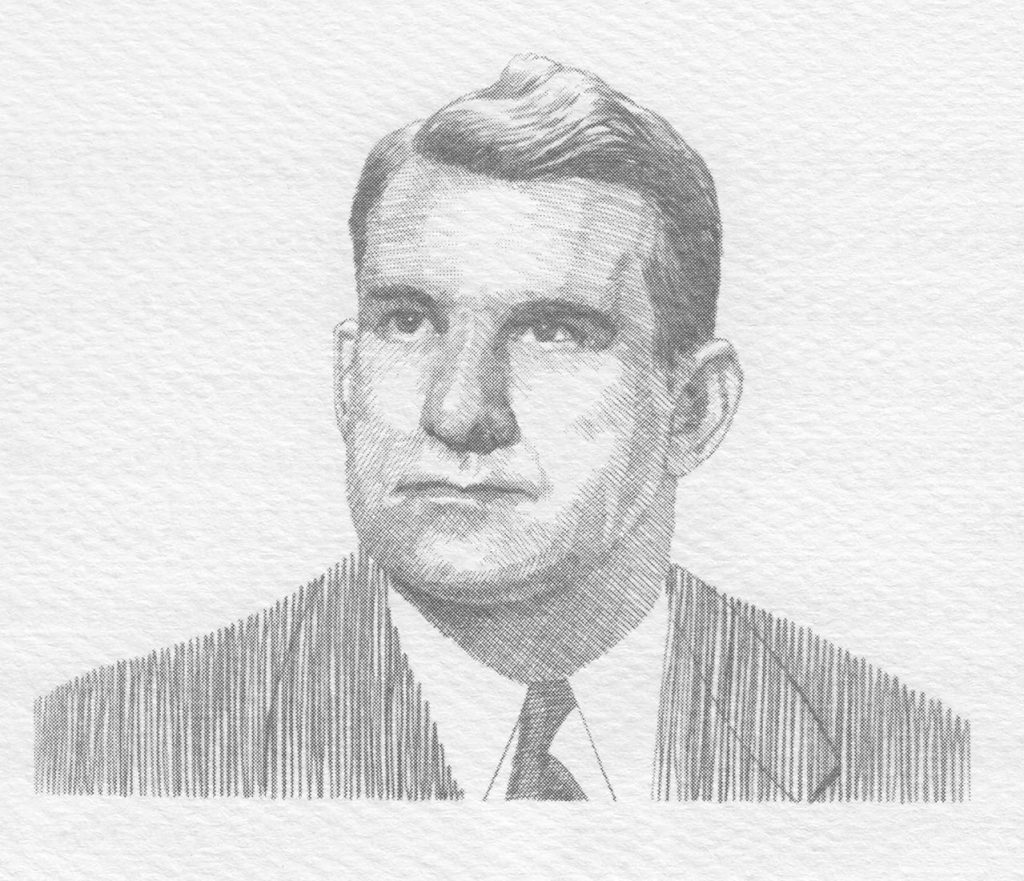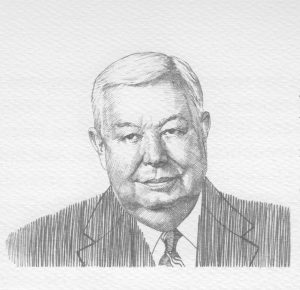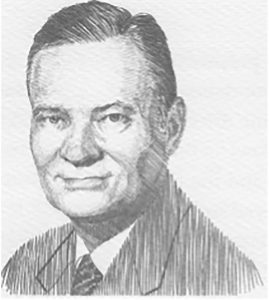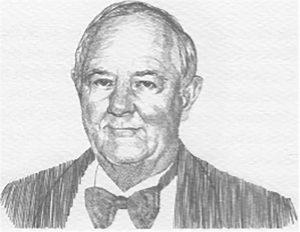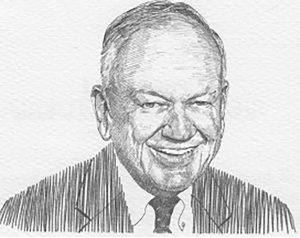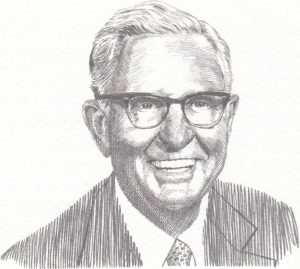The name “Fred Sington” says it all.
Name an award, he received it. Name a charity, he helped it. Name a civic organization, he was a member. Name a sport, he excelled at it. In fact, one sports columnist went so far as to describe Sington as “almost a mythic sports figure,” and “a ubiquitous civic worker.”
Somewhere along the line, he became known as “Mr. Birmingham,” and no title has ever been more fitting. At one point, Sington estimated that he had been involved with as many as 200 civic and community activities over the years, but that is probably an underestimate.
Fred Sington was born in Birmingham, February 14, 1910, the son of Max and Hallye Spiro Sington. He attended Phillips High School where he was a four-year letterman in football, basketball, baseball, and track, and was inducted into the National Honor Society. He then attended The University of Alabama, where he was a member of Alabama’s 1931 Rose Bowl team and an All-American tackle for three straight years, as well as a three-year letterman and All-American in baseball. The big tackle was generally regarded as the best lineman in the entire country. He was a member of Zeta Beta Tau social fraternity, ODK, and Phi Beta Kappa. He was vice president of the student body, and in 1931 received both the Porter Award for Best Athlete and the PanHellenic Award for Best Student. And he was just getting started.
Following his graduation in 1931, he became an assistant football coach at Duke University before embarking on a distinguished career in professional sports. For the next 10 years, he played professional baseball with the Atlanta Crackers, the Washington Senators, and the Brooklyn Dodgers. Following his playing days, he was an SEC official in football for 20 years.
When World War II began, Sington, of course, was there to help. He entered the Navy and served as a lieutenant junior grade from 1942 until 1946. He even coached the Oklahoma Navy Zoomers football team.
After the war, in 1947, Sington began his business career, Fred Sington Sporting Goods, opening a store in downtown Birmingham on Fifth Avenue North. His sporting goods business eventually spread into Homewood, Huntsville, Mountain Brook, Gadsden, Athens, and Scottsboro. In 1986 he sold his sporting goods business to Hibbett Sporting Goods but remained with the firm as a sales consultant.
Sington developed a reputation as a fine public speaker, which served him well as he became involved in the civic fiber of the city. He served on the Birmingham Civic Center Planning Committee, was chairman of the Downtown Birmingham YMCA, president of the Birmingham Kiwanis, and captain of the Monday Morning Quarterback Club. He was president of the Birmingham Football Foundation. At a meeting of the Hall of Fame directors, he proposed a Hall of Fame Bowl for Birmingham. The board agreed and the first Hall of Fame Bowl was played in Birmingham in 1977. The game later become the All-American Bowl and continued for several years. In 1972 he was president of the Birmingham Chamber of Commerce. He belonged to the “A” Club, Grand Order of the Krewe, Masons, and Shriners.
He served as a board member for the Salvation Army, Sertoma Foundation, City Federal Savings, and Loan Association, Vulcan Life Insurance Company, Junior Achievement, and the Boy Scout Council. His service reached beyond the city limits, as he served as president of the Alabama State Fair Authority; a coach for the Alabama Mentally Retarded Olympics, president of The University of Alabama National Alumni Association; a member of the President’s Council, The University of Alabama; a member of the Alabama Sports Hall of Fame Racing Committee; and as state chairman of the Alabama Heart Fund in 1978. His professional memberships included serving as president and treasurer of the National Sporting Goods Association and as chairman of the organization’s Hall of Fame Committee.
Throughout his entire career he was recognized for the time and effort he gave on behalf of others. He was elected to the National Football Hall of Fame in 1955 and received The University of Alabama Distinguished Alumnus Award in 1967. In 1970 he was awarded the Pat Trammell Award for distinguished service to the University, and in 1972 was the Junior Achievement Man of the Year and was awarded the Erskine Ramsey Award for distinguished service to the Birmingham area. That same year he was inducted into the Alabama Sports Hall of Fame, and two years later, the Southern Athletic Hall of Fame. In 1976 The University of Alabama conferred on him the honorary degree, doctor of humane letters. In 1978 he was named Sertoma Man of the Hour.
Sington and his wife, Nancy, were married 62 years and were included in a book titled “Marriages Meant to Be,” which featured stories about 14 couples who met and married. The union produced three sons, Fred Jr., David, and Leonard, seven grandchildren, and eight great-grandchildren.
Fred Sington is remembered and recognized by many for his athletic and civic accomplishments, for his sense of humor, and for his love for his community. His memory is particularly cherished by the winners of the Sington Soaring Spirit Award, presented by The Lakeshore Foundation, which serves people with disabilities. The organization’s newsletter published a special tribute to Sington. The Sington Soaring Spirit Dinner, named in his honor, is held annually to help benefit children and adults with physical disabilities.
No doubt the Sington saga will be told and retold many times in the years to come.
Fred Sington is said to have had a slogan: “If you don’t swing, you can’t hit.” When it came to helping people, Fred Sington was Joe DiMaggio, Ted Williams and Hank Aaron rolled into one.

